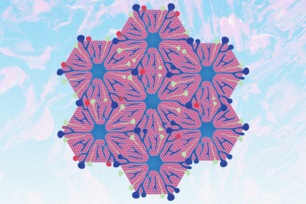Rudolf Jaenisch
Rudolf Jaenisch’s lab studies the genetic and epigenetic basis of diseases such as Parkinson’s, Alzheimer’s, autism and cancer.
455 Main Street
Cambridge, MA 02142
United States
Achievements & Honors
Research Areas
Affiliations
Question
What genetic and epigenetic factors contribute to human disease?
Approach
Jaenisch and his lab focus on understanding epigenetic regulation of gene expression (the biological mechanisms that affect how genetic information is converted into cell structures but that don’t alter the genes in the process). Jaensich uses patient-derived induced pluripotent stem cells to develop sophisticated models of conditions, such as Alzheimer’s disease and diabetes. The lab is also investigating epigenetic mechanisms for certain types of cancer and for brain development, studying how conditions such as Rett Syndrome occur. This work has led to major advances in our understanding of embryonic stem cells and induced pluripotent stem (IPS) cells, which appear identical to embryonic stem cells but can be created from adult cells without using an egg.
Researchers are now studying ways to optimize the creation of IPS cells, including finding alternatives to the potentially cancer-causing retroviruses used to transform the adult cells into IPS cells. The cells may soon allow scientists to transfer complex human diseases into Petri dishes for study, taking a first step toward analyzing the conditions and developing therapies. In the long run, IPS cells offer major promise for use in regenerative medicine, potentially supporting the growth of healthy cells and tissues derived from a patient’s own cells.
Most recently, Jaenisch and his lab have focused on the biology of SARS-CoV-2, the virus responsible for Covid-19. They showed that SARS-CoV-2 RNA sequences can be reverse-transcribed, or read by the cell into DNA, and then integrated, or inserted, into the genomes of virus-infected cells by a process involving the retrotransposon LINE1. This could explain why patients frequently show high levels of infectious virus in only the first 10 days after infections but yet often remain positive for the viral RNA by PCR for many months in the absence of detectable virus. The lab has developed a sensitive assay for identifying integration of any transfected RNA.
Bio
Jaenisch, a Whitehead Institute Founding Member and National Medal of Science recipient, received his doctorate in medicine from the University of Munich in 1967 in the lab of German phage researcher P. H. Hofschneider. Before coming to Whitehead, he was head of the Department of Tumor Virology at the Heinrich Pette Institute at the University of Hamburg. He has co-authored more than 500 research papers and has received numerous prizes and recognitions, including an appointment to the National Academy of Sciences in 2003.


